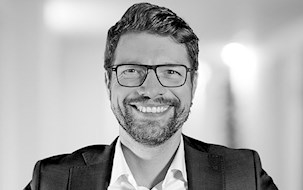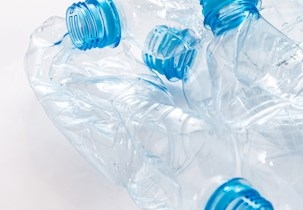LCA screening compares single-use cups with reusable ones at massive festival
One of Northern Europe's largest music and arts festivals gets evidence-based and comparable data for refining the logistics of reusable cups.
In Roskilde Festival's continuous pursuit to lower its environmental impact, beverage products are a natural focal point. Based on data from 2022 on the use of 0.4-litre glasses, they decided to investigate which beverage serving solutions were preferable from an environmental point of view and which parameters were decisive for the result. The purpose was:
- To increase internal knowledge about the environmental and climate profile of reuse solutions with an aim to develop these further.
- To identify the prerequisites that must be present before the reuse solutions are environmentally preferable in comparison with single-use cups.
LCA screening enables evidence-based decisions
A Life Cycle Assessment (LCA) is a comprehensive analysis method that evaluates a product or system's environmental impact throughout its entire life cycle, from raw material extraction to production, use and disposal.
"We introduced reusable glasses in 2019 but have leaned on outside data until this LCA screening by FORCE Technology. Now, we have a concrete analysis of the advantages and disadvantages of disposable and reusable glasses in our own closed ecosystem. This helps qualify an evidence-based conversation both internally and externally and is a baseline for future decisions based on energy consumption, water use, logistics systems and transport data. An LCA screening helps us gain more perspectives on what buttons to push logistically and behaviourally to get there. It also contributes to making us accountable, that we can present data openly to the outside world and everyone facing the same challenges," Roskilde Festival's Head of Sustainability, Sanne Stephansen, says.
The screening has helped us understand the complexity of the reuse-solution. That it's not all about the glass transport per se but the logistics systems we set up around the reusable glasses.Sanne Stephansen / Head of Sustainability, Roskilde Festival
New insights into environmental aspects of serving solutions
The LCA screening found that reusable glasses with onsite or off-site washing were environmentally superior to single-use glasses when these are used more than approximately four times. This takes into consideration both the production of the glasses, the washing methods, transportation, end-of-life and the waste treatment.
While the overall conclusion was no big surprise for Roskilde Festival, the report has given insights into the decisive aspects of the environmental performance of the serving solutions. It has fostered reflections on future actions at the festival:
"The screening has helped us understand the complexity of the reuse-solution. That it's not all about the glass transport per se but the logistics systems we set up around the reusable glasses. We no longer have to assume whether it is okay to transport the glass from A to B but can spend the time figuring out how to help our participants handle the product in a way that keeps it in circulation," Sanne Stephansen says.
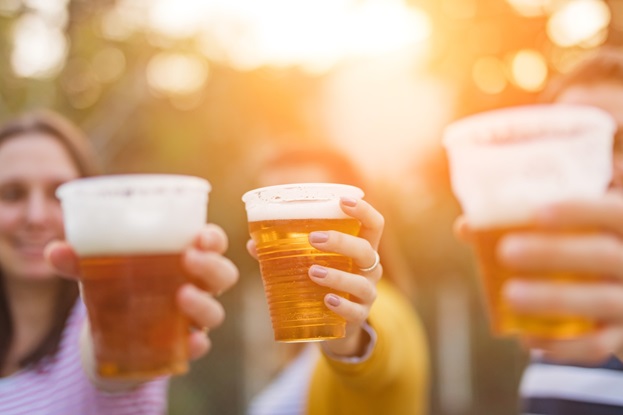
LCA data and model contribute to nuanced debate on disposable vs. reusable products
"The best solution for the Roskilde Festival depends on the number of times an average reusable cup is used, and this number is uncertain and difficult to predict. We found that washing, cooling and transportation only had a limited environmental impact in the study. However, this is due to the purchase of green electricity through Guarantees of Origin. A sensitivity calculation showed that if average electricity were used instead, the comparison between serving solutions changes. If the used glasses are recycled instead of incinerated, the reusable glasses should be used more than three times to be superior to disposable ones. We also found that the onsite washing solution has greater potential performance than an off-site washing solution.
Last but not least, one should consider the comparability when considering the learnings from this study. Roskilde Festival is a rather closed system, both in the physical location and in time. This affects the ability to collect the glasses, the data collection and possible solutions," Charlotte Merlin, Project Manager at FORCE Technology, says.
"We want the data and the model behind the comparison of reusable and disposable glasses to contribute to the general debate regarding disposable and reusable products and systems. An LCA screening shows that deciding between solutions is not simple. However, it gives insight into which parameters need to be considered, measured and acted upon when choosing the best beverage solution from a sustainability perspective," Business Development Manager, Resources and Circular Economy at FORCE Technology, Christine Bang Kragelund says.
Consumer behavior: A key factor in green transition
The environmental success of reusable glasses depends on their usage rate. Factors like deposits, nudging, and awareness campaigns play a critical role in encouraging participants to return and reuse the cups, ensuring a successful circular economy.
Pioneers within sustainability, Roskilde Festival has an impressive, ongoing track record of integrating responsible procurement, consumption, waste management and reuse into every aspect of the massive yearly event.
"For a very limited time, we and all our participants can try out new solutions in what we consider a temporary city and large test platform. Lowering the carbon footprint on the organiser side of things is just one aspect – we also want to use our unique format to entice people into having conversations about moving from the over-consuming status quo," Sanne Stephansen says.
The recently conducted LCA screening supports the implementation of a circular economy, which is just one part of Roskilde Festival's sustainability strategy.
Related content
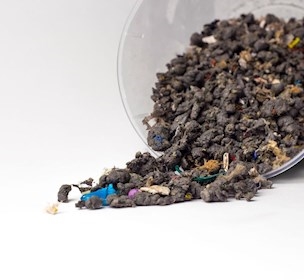
Documentation of sustainability
/Page
Environmental assessment in sustainable development documentation.
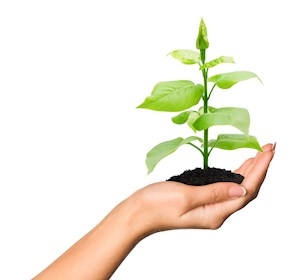
Climate and environmental impact documentation
/Service
Climate- and CO2-based documentation, so you can document your company's environmental impact.
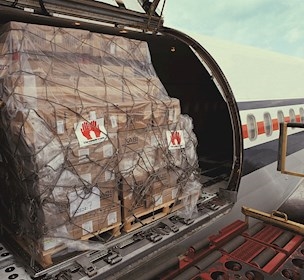
LCA – Assess environmental impact of your product
/Service
Document and communicate your product’s environmental impact with a complete life cycle assessment.

